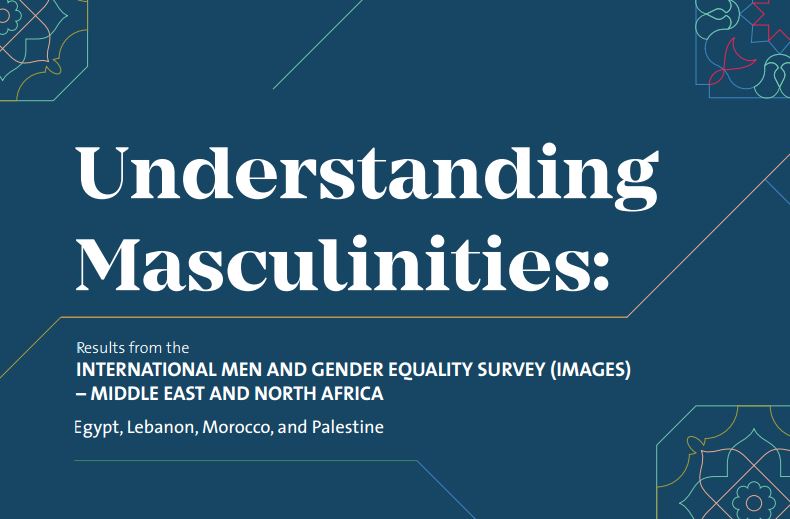This report is rather eye opening for some, but standard fare for most who already know just how misogynistic the Muslim/Arab world is, thanks in great part to that anti-female belief system Mohamed created. Taking almost every vice known to man and codifying it into law.
This finding, that more educated men are more likely to have sexually harassed (with the highest rate found among men with secondary education, in three of the four countries) – and that more educated women are more likely to have experienced sexual harassment – is one that deserves more research.
Understanding Masculinities: Results from the:
INTERNATIONAL MEN AND GENDER EQUALITY SURVEY
(IMAGES) – MIDDLE EAST AND NORTH AFRICA Egypt, Lebanon, Morocco, and Palestine
The International Men and Gender Equality Survey – Middle East and North Africa (IMAGES MENA) study includes quantitative and qualitative research with men and women aged 18 to 59 in Egypt, Lebanon, Morocco, and Palestine. Local research partners are: (1) Egypt: El-Zanaty and Associates; Social Research Center, American University in Cairo (AUC); (2) Lebanon: Connecting Research to Development (CRD); ABAAD; (3) Morocco: Association Migration Internationale (AMI); Rajaa Nadifi (independent researcher); Gaëlle Gillot (independent researcher); (4) Palestine: Institute of Women’s Studies at Birzeit University
[…]
CYCLES OF GENDER-BASED VIOLENCE
As other studies have shown, experiences of gender-based violence, particularly intimate partner violence and sexual harassment in the streets, are common for women across the region. All told, across the four countries, around 10 per cent to 45 per cent of ever-married men reported ever having used physical violence against a female partner, with approximately equal numbers of women affirming they had experienced this violence. Equally harmful to women’s lives are high rates of emotional violence: between 20 per cent and 80 per cent of men reported ever having perpetrated some form of emotional violence against their wives. In all four countries, as seen in other parts of the world, men who witnessed their fathers using violence against their mothers, and men who experienced some form of violence at home as children, were significantly more likely to report perpetrating intimate partner violence in their adult relationships.
The roots of gender-based violence, as in other parts of the world, are found in women’s limited power, in violence-supportive attitudes, and in highly violent childhoods. In all four countries, half to three-quarters of the men reported having experienced physical violence in their homes growing up, and two-thirds or more reported having experienced physical violence by teachers or peers in school. In all four countries, women had also experienced these forms of physical violence, but at lower rates than had men.
The violence men and women experienced as children turns into violence against their own children. Across all four countries, 29 per cent to 50 per cent of men and 40 per cent to 80 per cent of women reported using some form of physical punishment or other forms of violence against their own children. Women’s higher rates of physical punishment against children are clearly a function of the fact that women carry out the majority of the caregiving. Violence against children is also gendered: in most countries, fathers tend to use more physical punishment against sons.
The other most prevalent form of gender-based violence in the region is street-based sexual harassment, mainly sexual comments, stalking/following, or staring/ogling. Between 31 per cent and 64 per cent of men said they had ever carried out such acts, while 40 per cent to 60 per cent of women said they had ever experienced it. When asked why they carried out such violence, the vast majority of men – up to 90 per cent in some countries – said they did it for fun, with two-thirds to three-quarters blaming women for dressing “provocatively”.
Younger men, men with more education, and men who experienced violence as children are more likely to engage in street sexual harassment. More educated women and those in urban areas were more likely to report that they had experienced such violence. This finding, that more educated men are more likely to have sexually harassed (with the highest rate found among men with secondary education, in three of the four countries) – and that more educated women are more likely to have experienced sexual harassment – is one that deserves more research.
More here. H/T: Servando S

